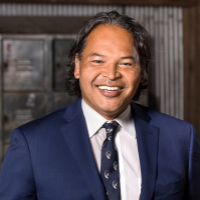 Hope Criminal Lawyers, Minnesota
Hope Criminal Lawyers, Minnesota
Sponsored Lawyers
1-7 of 7 matches
Criminal, DUI-DWI, Divorce & Family Law, Real Estate, Business
Mr. Reppe developed a passion for helping individuals with their legal problems while working as a public defender early in his career. He moved on to work in the private sector as an attorney at a large law firm in Minneapolis before founding Reppe Law Office PLLC. A Northfield native, Jonathan Reppe offers considerable experience in complex transactional and litigation cases. His areas of practice include criminal law, bankruptcy, real estate, business law, DUI/DWI, and family law. Mr. Reppe often speaks at continuing legal education seminars to share his extensive knowledge with other members of the legal profession. He also participates in a number of local volunteer and service efforts.
(more)Bankruptcy & Debt, Misdemeanor
Lance R Heisler is a practicing lawyer in the state of Minnesota handling bankruptcy matters.
(more)





